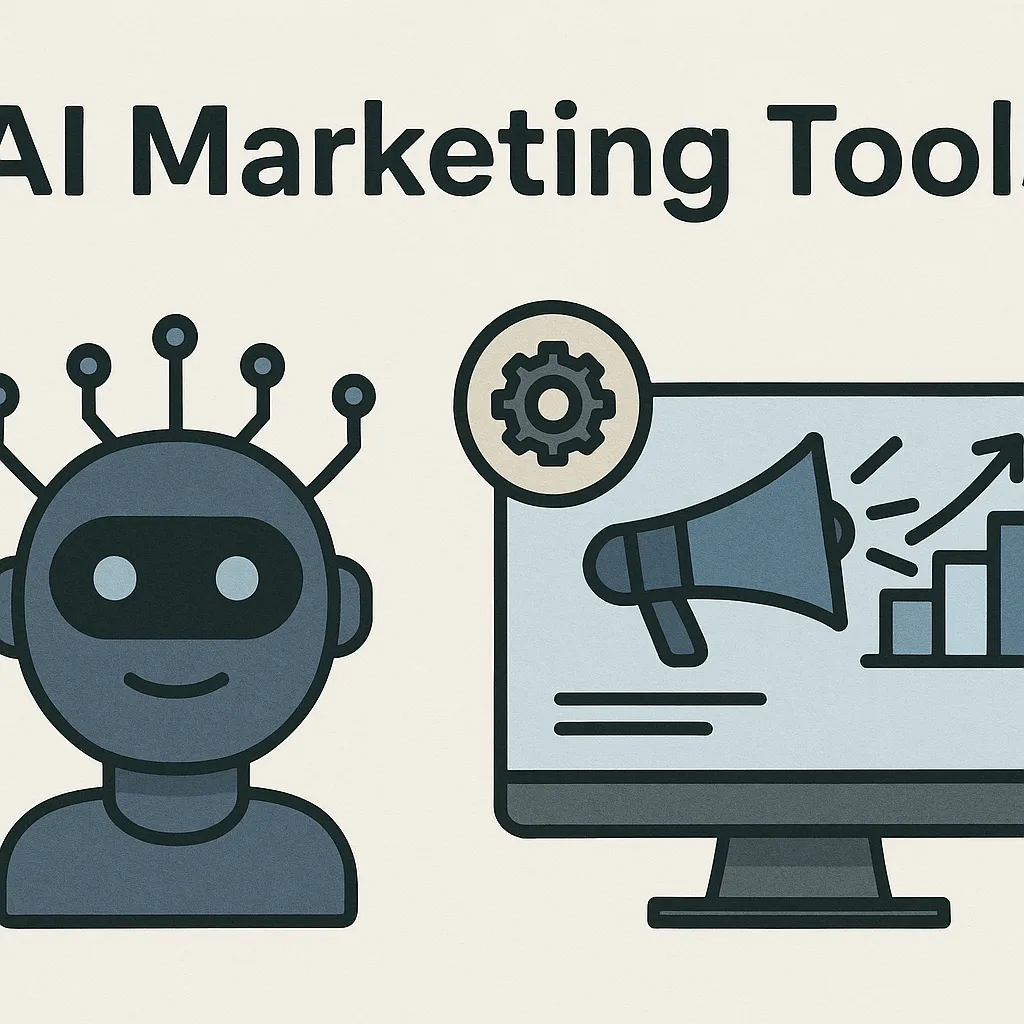Gone are the days when basic customer segmentation was enough to drive meaningful engagement. Today’s consumers expect personalized, relevant interactions at every touchpoint. This has made customer experience the defining factor for business success. The challenge? Delivering hyper-personalized customer journeys at scale.
Enter AI marketing tools. These advanced platforms not only streamline marketing processes but also create highly targeted experiences tailored to the unique preferences and behaviors of each consumer. This blog explores the capabilities of AI tools for marketing and how they revolutionize personalization to foster deeper customer connections and drive business growth.
What Are AI Marketing Tools?
Before we explore their impact, let’s clarify what AI marketing tools are. These are software applications powered by artificial intelligence technologies, such as machine learning, natural language processing, and predictive analytics. By analyzing vast datasets, they can identify patterns, predict customer behavior, and generate actionable insights in real-time.
These tools enable marketers to automate repetitive tasks, optimize campaigns, and, most importantly, craft engagement strategies that resonate with specific audiences. When integrated effectively, they transform how businesses connect with their customers.
The Evolution from Segmentation to Hyper-Personalization
Traditional customer segmentation divides audiences into broad groups based on shared characteristics like age, location, or purchase history. While useful, this approach often lacks the granularity required to create truly meaningful experiences.
Hyper-personalization, on the other hand, leverages AI technologies to analyze customer data at an individual level. Instead of grouping consumers into predefined segments, AI marketing tools allow businesses to engage with each customer as a one-of-a-kind entity. Here’s how this shift is achieved:
-
Data-Driven Insights
AI tools for marketing can process vast amounts of data from multiple sources, including CRM systems, social media platforms, and website analytics. This multi-channel approach ensures that businesses have a 360-degree view of each customer’s preferences, habits, and behaviors.
For instance, AI-powered platforms like Salesforce Marketing Cloud utilize predictive analytics to determine when a customer is most likely to engage with an email or make a purchase. This insight drives communication strategies that are timely and highly relevant.
-
Tailored Content Creation
One of the cornerstones of hyper-personalization is delivering content that feels uniquely catered to the individual. AI marketing tools use natural language processing (NLP) to analyze customer behavior patterns and create personalized recommendations.
Spotify provides a stellar example of this. Its AI algorithms consider listening habits and preferences to generate customized playlists such as “Discover Weekly,” making each user feel like their music app truly “gets” them.
-
Real-Time Customer Journeys
Today’s consumers demand instant gratification. AI marketing tools excel at reducing response time by enabling real-time personalization. Whether it’s dynamic website content or chatbots offering instant solutions, AI ensures seamless, on-demand customer experiences.
Take Amazon’s recommendation engine, for example. By analyzing the customer’s browsing patterns and purchase history in real-time, it suggests products they are most likely to buy at that very moment, boosting cross-sell and upsell opportunities.
-
Predictive Personalization
AI marketing tools go beyond reacting to customer needs; they predict them. By using machine learning algorithms to study historical buying patterns, businesses can anticipate what customers will want next.
For instance, Netflix’s recommendation algorithm predicts what shows or movies a user wants to watch before they even search for them. This level of foresight not only keeps customers engaged but also builds brand loyalty.
Key Benefits of AI Marketing Tools for Businesses
Investing in AI marketing tools is no longer optional for companies aiming to stay competitive. Here are the core benefits these tools bring to the table.
Improved Customer Engagement
Hyper-personalization ensures that customers receive messaging and offers that resonate with their specific interests and needs. This fosters stronger emotional connections, resulting in higher engagement and retention rates.
Enhanced Marketing Efficiency
AI tools for marketing automate routine tasks, such as A/B testing, reporting, and budget allocation. Marketers can spend less time on logistics and more time on strategic decision-making.
Better ROI
By tailoring campaigns to each individual’s preferences, AI-driven marketing reduces wasted spend and improves the return on investment. The more precise the targeting, the better the results.
Competitive Advantage
Adopting AI tools early positions businesses as leaders in customer experience. Organizations that prioritize hyper-personalization future-proof themselves against competition in a rapidly evolving digital landscape.
Implementing AI Marketing Tools in Your Business
If you’re considering integrating AI marketing tools into your strategy, here’s a quick roadmap to get you started.
Step 1: Define specific goals, such as increasing customer retention, reducing churn, or improving website conversions.
Step 2: Choose the right AI tools based on your business needs.
Step 3: Focus on data quality. AI tools rely on clean, accurate datasets to deliver meaningful insights. Consider conducting a data audit before implementation.
Step 4: Monitor performance metrics. Use KPIs such as engagement rates, conversion rates, and customer lifetime value (CLV) to gauge the impact of your AI tools and refine strategies accordingly.
Hyper-Personalization Is the Future
AI marketing tools have redefined the possibilities for personalization, enabling businesses to create customer journeys that feel deeply meaningful and relevant. By moving beyond basic segmentation, organizations can foster stronger relationships, increase customer satisfaction, and ultimately, secure a competitive edge.
The future of marketing is not just about reaching more people; it’s about reaching the right people, with the right message, at the right time. And AI marketing tools are the key to making that happen.
